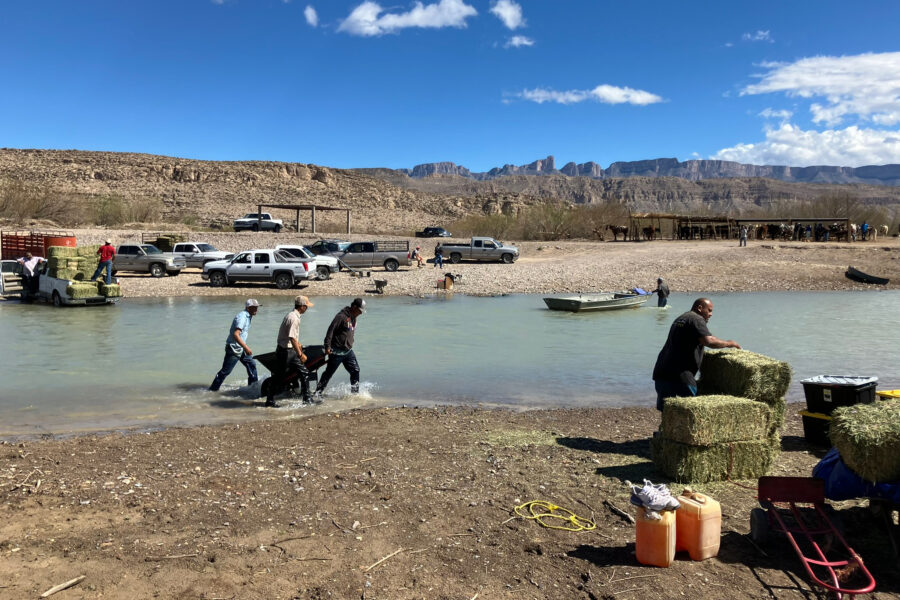A coalition of 17 states and the District of Columbia sued the Environmental Protection Agency on Tuesday, asking a federal court to block a Trump administration attempt to weaken automobile emissions standards.
The states, led by California Attorney General Xavier Becerra, argue that a recent EPA decision to revise the Obama-era emissions rules was made without clear reasoning or evidence to support it and should be struck down.
“The evidence is irrefutable: today’s clean car standards are achievable, science-based and a boon for hardworking American families,” Becerra said in a statement. “But the EPA and Administrator Scott Pruitt refuse to do their job and enforce these standards.”
The standards ratchet up fuel economy requirements for cars and light trucks through model year 2025. In January 2017, before Trump took office, the EPA issued an evaluation for years 2022-2025, saying that the ambitious auto efficiency and greenhouse gas emissions standards were feasible and that the benefits outweighed the costs of implementation.
But last month, Pruitt announced the agency was withdrawing that determination and would revise the standards. The EPA wrote that it was reversing course because “many of the key assumptions EPA relied upon in its January 2017 Determination, including gas prices and the consumer acceptance of advanced technology vehicles, were optimistic or have significantly changed and thus no longer represent realistic assumptions.”
While the Trump administration has yet to announce what it would replace the current standards with, one option reviewed by The New York Times last week would freeze them at 2020 levels. The agency is also expected to revoke California’s waiver allowing it to set more demanding standards, which other states may also follow.
Arbitrary and Capricious?
The states that filed suit on Tuesday are asking the U.S. Court of Appeals for the District of Columbia Circuit to rule that Pruitt’s reversal was arbitrary and capricious and should be blocked.
A report published Tuesday by the Institute for Policy Integrity at New York University School of Law supports their claim. The report says gasoline price forecasts remain essentially unchanged since the EPA made its first determination, and that purchases of electric and hybrid vehicles remain strong.
“EPA provided no factual basis for its decision to reverse course on emissions standards,” Jeffrey Shrader, an economic fellow at the institute, said in a statement. “The data supporting the existing standards is robust, and it has not changed significantly since the agency’s thorough review in 2017.”
Critical for Cutting Climate-Warming Emissions
The auto standards are arguably the most important single policy for cutting the nation’s climate-warming emissions. While emissions from the electricity sector have been falling as natural gas and renewable energy sources replace coal, those from the transportation sector have continued to climb. Transportation is now the single largest source of energy-related carbon dioxide emissions.
California in particular has resisted the Trump administration’s attempts to reverse or weaken the emissions rule. The state has adopted ambitious goals to cut its greenhouse gas emissions and likely cannot achieve them unless its automobile fleet becomes more efficient and more electrified.

The coalition that filed suit today includes California, Connecticut, Delaware, Illinois, Iowa, Maine, Maryland, Massachusetts, Minnesota, New Jersey, New York, Oregon, Pennsylvania, Rhode Island, Vermont, Virginia, Washington, and the District of Columbia. Those jurisdictions represent 44 percent of the nation’s population and 43 percent of new car sales, the group says.
“These emission standards are common sense—protecting our air and mitigating our contributions to climate change, all while saving drivers money at the pump,” New York Attorney General Eric Schneiderman said in a statement. “Yet the Trump administration conducted a phony study, ignoring the facts and the law in order to cook the books on these critical standards.”
About This Story
Perhaps you noticed: This story, like all the news we publish, is free to read. That’s because Inside Climate News is a 501c3 nonprofit organization. We do not charge a subscription fee, lock our news behind a paywall, or clutter our website with ads. We make our news on climate and the environment freely available to you and anyone who wants it.
That’s not all. We also share our news for free with scores of other media organizations around the country. Many of them can’t afford to do environmental journalism of their own. We’ve built bureaus from coast to coast to report local stories, collaborate with local newsrooms and co-publish articles so that this vital work is shared as widely as possible.
Two of us launched ICN in 2007. Six years later we earned a Pulitzer Prize for National Reporting, and now we run the oldest and largest dedicated climate newsroom in the nation. We tell the story in all its complexity. We hold polluters accountable. We expose environmental injustice. We debunk misinformation. We scrutinize solutions and inspire action.
Donations from readers like you fund every aspect of what we do. If you don’t already, will you support our ongoing work, our reporting on the biggest crisis facing our planet, and help us reach even more readers in more places?
Please take a moment to make a tax-deductible donation. Every one of them makes a difference.
Thank you,














